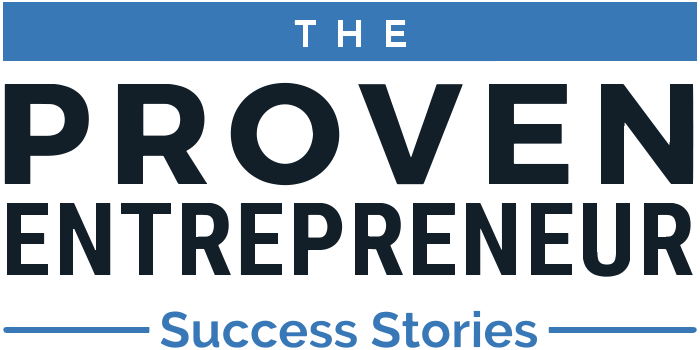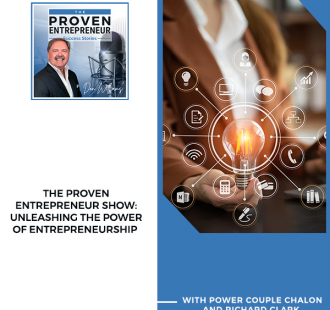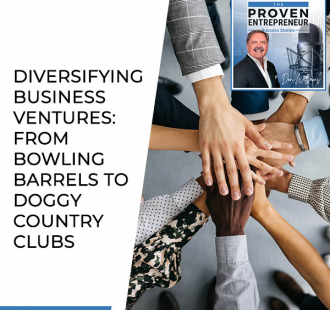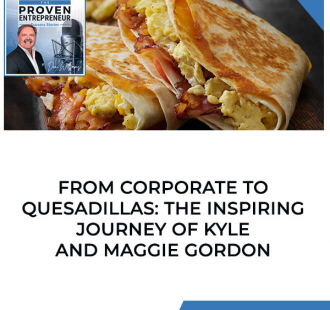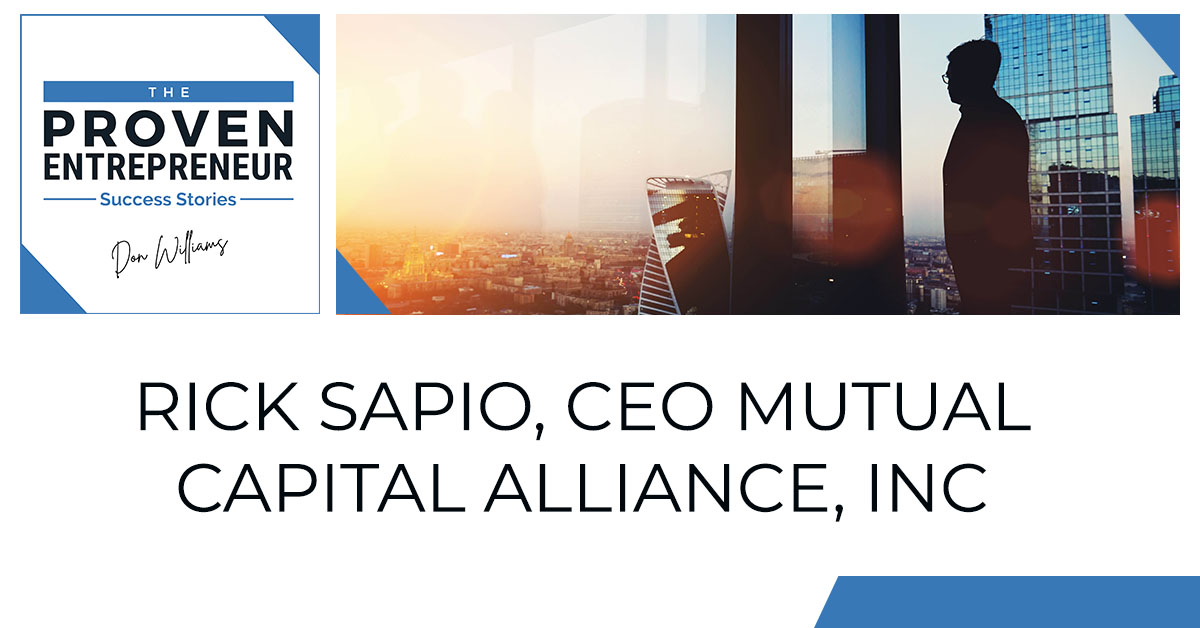
With lessons learned from adversities coupled with luck, things can take you right where you’re supposed to be. Rick Sapio did not take his past experiences for granted, learning and taking advantage of them as he stepped into the entrepreneurial life. Now, he is a Dallas powerhouse CEO, investor, author, and engineer and the founder of Mutual Capital Alliance, Inc. In this episode, he joins Don Williams to share with us the story that pushed him to start a business at 13 years old, pursue engineering, and eventually found his company. Rick also tells us what he discovered about billionaires that separate them from the pack, the common mistakes entrepreneurs make, and why you need a liberating structure to reach your potential.
For information on how to work with Don visit Work With Don Williams
You can also reach out to Don Williams at https://donwilliamsglobal.com
Please join Don and his businesses in support of St. Jude’s Children Research Hospital in its Mission to cure Childhood Cancers. You can donate to St. Jude at stjude.org/donate
—
Watch the episode here
Listen to the podcast here
Rick Sapio, CEO Mutual Capital Alliance, Inc
Dallas Powerhouse CEO, Investor, Author, Engineer
I have a good friend and an amazing entrepreneur with us. He’s the Founder and CEO of Mutual Capital Alliance. Welcome, Mr. Rick Sapio.
Thanks for having me on the show.
I am thrilled that you are here. Let me take you all the way back to little Rick, 5 to 18. I happened to know a little bit about you. Back in Jersey, in the house where you grew up, was there an adult who was an entrepreneur who set an entrepreneurial example for you as a child?
Yeah, it was my dad. He had nine mouths to feed. He was busy. He taught me a lot more about entrepreneurship than rolling with the punches. He was in the car business, of all things. There was always something to do at home, fixing engines, cleaning cars, changing tires, all of that. I did it all from as young as I can remember. In fact, there are pictures of me at the age of three cleaning out the trunks of cars. He did a lot of volumes, mostly in used cars.
Was the car business his main thing or a side hustle?
It’s the only thing he knew. He had a sixth-grade education. He grew up in Hoboken, New Jersey. He didn’t have a lot of options back in the day.
The car business is one of those businesses where it’s bell to bell. You start early. You work late every day. It’s about the only way to make that deal go. Tell me about your first job. We are probably close enough in age. I mowed my parents’ lawn, not because I got paid but because it was my job. Not those kinds of jobs but a job where somebody paid you. Maybe you had a lemonade stand. Maybe the first job you were an entrepreneur. What was that?
I was always looking to make money. Where I grew up, and I don’t do that these days but when it snowed out, we were excited because we knocked on doors with our shovels. When it was the fall, we knocked on doors with our rakes. In my first real job, I had to get up at 5:00 AM, seven days a week, rain or shine, sick or not sick, and deliver the New York Daily News to 200 people.
It doesn’t exist anymore. Only companies do it now. When my dad got sick, I was eleven. He came home for dinner one day and announced to the family that his back was hurting. We went to the doctor. On the first doctor visit, he was given six weeks to live. My mother panicked and put all the kids to work. My first real job was 5:00 AM, I would feel the sheets come off the bed, and sometimes they would be freezing out, and I had to run outside. They would drop a stack of 200 newspapers on the front lawn in a big plastic bag. I had to bring them into the house, fold them the correct way, and put them in a plastic bag with a rubber band around it. Every house wanted it inside the door. I delivered it seven days. Fridays, I would collect.
You literally had to go to every door, open the door, set the paper, and close the door.
Most houses had a screen door back in the day. We put it between the screen door because they didn’t want it wet or whatever. I started throwing it on the lawn. That was okay. On the afternoon paper, I had two routes. I had the Bergen Record in the afternoon and the New York Daily News in the morning. It was interesting. I was born in 1963. This would have been ’75-ish, ‘74, ‘75 or ’76. I made good money. I was probably making $60 a week between the two routes. You learn about customer service. You learn about doing what you say you can’t miss a day. It was impossible. Could you imagine kids now doing that? They would call that child abuse. It taught me everything I know about business. If you have a paper route, that’s all you need to know. It’s all right there.
You got to go collect the money. You got to get the money. I had a good friend growing up. His father worked for the newspaper but they had 12 children, 11 boys, and 1 daughter. I grew up modestly in Wichita, Kansas. It’s a small home. Their basement was built like a barracks. All the boys lived in the basement in bunk beds. They were 4 to 20 or something. The daughter lived upstairs with the parents.
My buddy and half a dozen of his brothers were all minors, probably 6, 7, 8, up to 14, 15. They all had a paper route. Some of them had two like you. That was an everyday rain, snow or shine. I don’t know if the mail works but the newspaper used to. That’s awesome. Tell me a little bit. You shared with us that your dad got a horrible diagnosis. I know the story but would you tell us a little bit about that?
He was given six weeks to live, and my mother panicked. We all went to work. My dad, due to my aunt, who was an actress in Hollywood at the time, found a clinic in Mexico. My dad was rushed to this clinic and went on some experimental and natural cures for cancer. His cancer went into remission for two years. It was during those two years that he almost knew he was going to die. He taught us, “You’ve got to learn independence. You’ve got to learn how to work. You’ve got to learn how to make money and bring it home.” Nowadays’ parents spend so much time putting pillows under their kids’ butts just in case their butts might hit the ground. I watched my dad, over a two-and-a-half-year period, go into my remission, and then the cancer came back.
He went from 220 pounds to 85 pounds when he died of bone cancer. He died when I was thirteen. My teenage years were not easy. We didn’t have any money. We didn’t have any financial support from anywhere. Yet, I fast-forward, and all my siblings got married. There are over 300 years of marriage between us and no divorces. That’s from a tough upbringing. It’s important that children experience adversity and difficult times. Sadly, parents don’t allow their children to do that these days. My wife and I are not like that. We do our best to let them experience life.

I applaud that. I know that with my own children, I tried not to be the parent who would put the pillow down because the reality is that you learn when things don’t go well. You probably learn more than when things are going well for you.
I say to them all the time, “There’s no failure. There’s either success or learning.”
I tell my clients, “You either win or you learn. Learning is a little slower of winning. If you are not learning, that’s another problem.” You got through high school. You survived a challenging, at least economically, childhood, as your brothers and sisters did. You backpacked across Europe. You joined the Merchant Marines. You went to university.
Let me go back to when I was eleven. My mother asked me to live with, of all things, the father of my oldest brother’s future wife. She didn’t even know this guy that well. She panicked. She shipped the kids off. I lived with this guy for a summer when I was eleven. It was after 4th or 5th grade. I can’t remember. He owned an engineering firm. He sat me down and said, “You don’t have much hope in your future with your dad’s sick and all that. I got an Engineering degree. It opened up amazing doors for me. Let me show you my engineering firm.” I was blown away by what this guy did for a living.
He lived a comfortable life. He said, “If you get an Engineering degree, you could become a doctor or a lawyer. You could work on Wall Street, which is right across the river from where you live. You can write your own course.” It never left me. Anytime after that meeting, somebody said, “What do you want to do with your life?” I would say, “I don’t know but if I get an Engineering degree, which I’m going to, I can become a doctor, lawyer or a business person. I could work on Wall Street. I could do whatever I want.” As luck would have it, and there’s always a little bit of luck that we have to take advantage of in life, I did well on my SAT Math. New Jersey gave scholarships to Rutgers University for students that did well.
There's always a little bit of luck that we have to take advantage of in life. Click To Tweet
They gave 10 scholarships to the highest 10 scores in New Jersey. My older sibling said, “Try to study hard for your SAT,” which I did. I was given a scholarship for engineering at Rutgers. Lo and behold, how bizarre is that? It was brutally hard because I didn’t go to a good high school. I remember getting to college and seeing all these people from China and India.
They knew what Calculus and Physics were and everything else. I had not experienced that. It was hard. Through college, the scholarship was only a partial scholarship but I did get into the Engineering program. I worked full-time all through college. As luck would have it, when I graduated in 1987, I was able to get a Wall Street job.
From the age of eleven, it’s critical for adults to think about how much influence they have. It could be one meeting. I only had one lunch with this guy, by the way. It was one meeting where he said, “If I were you, this is what I would do.” Oftentimes, we don’t realize how much impact we have on other people. I’m careful. In fact, as I speak to you, I had lunch with a guy who asked me to mentor him. I was careful what I said to him about his questions regarding career options.
Certainly, a little luck your mother asked you to go live with, I didn’t follow, the sisters?
My oldest brother was about to get married. His future father-in-law said, “Have him live with me for the summer. I could teach him a little bit.”
What a great guy to step up and then sprinkle a few wise words. Kudos to you for having an open mind because most 10, and 11-year-olds now certainly probably wouldn’t to that conversation. That got you started, for sure. Tell us about the first business you started.
The first business was after the paper routes because I wasn’t making enough money. Me and my friend, Chris Mason, started a bicycle repair shop. We took it seriously. We made flyers. We passed it around. We bought bicycle parts from the junkyard. We made and fixed bikes. I did that for about two years. When I was fifteen, I started working on cars, which I grew up with. I probably bought and sold over 100 cars. I made a lot of money from 15 to probably 22 or 23. When I was in college early on, I discovered bartending. I bartended for five years. Even after I got my first real job, I bartended almost seven nights a week in New York City and North Jersey, making a lot of money.
When I was 23, I bought two rental properties near the Rutgers campus and had 29 tenants. I did something which they still do now. They didn’t do it then but I got these big houses and broke them up into rooms because I was handy. I signed individual leases. What most of the landlords did back then was they would sign a group lease on the house. I realized I could make far more money charging $200 a month per person rather than $1,000 for the whole house and trying to collect money from everybody. If a person didn’t pay for the lease, it was easier to eject one person rather than the whole lease. That was fun. I fast forward a little bit but my first business was a bicycle repair shop.
The college rental business, and we both live in Dallas-Fort Worth, is popular here. It’s so popular that big cities like Dallas and Fort Worth are boxing that in a little bit. They are putting a little more regulation on top of that. You were a pioneer back then to rent the room with common areas being common. That was pretty amazing. Talk about your first business after college.
I read an article about Oprah Winfrey. When she got her first job, she was an independent contractor. She wasn’t a W-2 employee. She started her company. In my first Wall Street job, I asked to be a 1099 employee and started my own company. I was a consultant to the business, even though from everybody else’s perspective at the company, I was an employee.
Instead of earning a base salary and a commission, I asked to earn 50% of the revenue that I produced. I work for a firm in which we sold the bonds of bankrupt public companies. Everybody else was earning a salary and a bonus. I was earning 50% of the revenue. In my first year in that business, I generated over $1 million in revenue. I was able to make more than $500,000. This is in the early ‘90s. Right off the bat, I didn’t want to be an employee. I have always wanted to be a business owner.
My first real business was being 1099 of a Wall Street firm, which was perfectly legal back in the day. I did that for about six years and then started my company, which I still work at now, called Mutual Capital Alliance, which started as a holding company. As it relates to being a holding company, we’ve spawned over 60 different businesses over the years by investing in various companies. It has been an incredible almost 30 years of making investments, selling, merging, closing down, and all kinds of different transactions over the years. We’ve done a lot of different things as a holding company.
What’s funny about that story is my first Wall Street job, every time I tried to open an account with somebody who was wealthy because we sold the bonds of bankrupt companies to wealthy people because we told the story of if the bond goes through bankruptcy, bonds get converted to equity and the equity gets flushed to zero. We did fourteen deals when I started.
Every time I opened an account with a wealthy person, my firm would say, “We already have an account with that person.” The CEO would say, I met him years ago, “He’s mine.” I got sick of that. I went West. I would fly into Chicago and whatnot and try to open accounts. As luck would have it, before anybody knew who he was in the late ‘80s, I met Warren Buffett. He was a client for six years.
I was certain when I came back to the office that the firm would have him as a client. They didn’t know who he was. He didn’t become famous until it was 1991 when Salomon Brothers went bankrupt, and he emerged as the largest shareholder. He became the CEO of the Salomon Brothers. Before that, no one knew who he was. He is the reason why I started Mutual Capital Alliance as a holding company. I didn’t know a holding company from my backside but he’s like, “If you are going to start a business, make it a holding company because you can have one steady company that you can buy and sell and create and have startups underneath it,” which has served us well over the years.

I did not know that part of your story. That’s pretty amazing. You are maybe the only person on the planet who has interviewed more than a couple of billionaires. Tell us about that.
When 2008 hit, things got scary for us. We were overleveraged in a lot of ways. I got nervous. My wife and I were sitting down one day. We have all about rhythms. I call them liberating structures. My wife and I have dinner every Monday night. We go on a date at 7:30. It’s freeing. We haven’t missed one since we met many years ago. We are out to dinner and I said, “I don’t know if we are going to get through this.” She said, “Why don’t you meet people that have been through it?” As luck would have it, I was on a board of a charity. We had signed up six billionaires to give away lunch.
You bid on having lunch with a billionaire. It’s pretty famous now but Warren Buffett auctions off lunch once a year. People pay $1 million to have lunch with Warren Buffett. In the case of this small local charity, it was less than $500 to have lunch with T Boone Pickens, Ross Perot, and Phil Romano. I was able to have lunch with six of these billionaires that are local for less than $2,000. It was fascinating.
I became friends with all of them. I went with the perspective of, “How can I help you?” Not, “How can you help me?” It evolved, and they introduced me to more. I ultimately got up to 44 billionaires. I realized there’s a lot of consistency among them in terms of clarity of purpose. We all put our pants on the same way in the morning but if you think somebody is more successful and you are afraid to ask them a question, the reason we all fear asking people that we deem more successful and ask a question is that we know the answer is probably going to be no.
What I realized is that they are clear on what their values, objectives, and purpose are and that they say no to almost everything. All of us as human beings can learn from that. Most of us are addicted to yes. As soon as that screen lights up in the morning, we are saying yes to everything that’s coming at us. The way these billionaires approach their life is that they know what their lane is. They know what their values are. They know what their purpose is, which by the way, all of us should know and should be written down.
I gained tremendous clarity from those 44 opportunities. I spent six weeks with Richard Branson, which is a long story. I ended up creating this entrepreneurial event, which we went to Necker Island, which is still going on now. That started in May of 2008. I found these people to be far more present when I was with them than anybody else. I never saw cell phones around. It was never interrupted. You get their full presence. It’s because they have learned how to live life fully.
Let me ask you. Forty-four interviews. Is there a book in there somewhere?
I don’t know. I have been asked. I’ve made some speeches about it but the reality was that I didn’t approach it from that perspective. I feel like I would be breaking some confidence if I did that. I will tell you that there was a tremendous amount of consistency among them. I could share some of the stories. For example, they all had, from a young age, an accountability partner in the form of, we call it, an assistant but they elevated their assistant to rock star status like, “You are in charge of my success.”
A lot of regular people looked down upon their assistants. These people elevated their assistants. Many of them were with them for decades. I became friendly with the assistant because the assistant was good at deciding who gets to see the boss or not. It changed my view on that. I call my assistant my accountability partner, not my assistant. I don’t even like that word. I always judge people. Maybe that’s bad if they go through the assistance they last for three months. They don’t treat them like an accountability partner. If you treat that person well, that allows you to achieve more and have more freedom.
If you treat assistants well, you achieve more and have more freedom. Click To Tweet
It’s a good yardstick of a person’s character and integrity on how they do treat other people and, certainly, subordinates as far as that goes. What about if I ask you to look back across your career for a hard lesson, something that happened where at the time is like, “That hurt,” but maybe now, in retrospect, was the best thing that could have happened for you? Do you have a hard lesson you could share with us?
Many lessons. I’ve written a book about it. The book is called Who’s In Your Room. Every single problem that I, you or anybody who’s reading ever had started when you let someone or something into your life that didn’t align with your values. Every single time I’ve hired somebody, whether it’s an attorney, an employee, or a partner, that didn’t align with my values, I’m going to pay.
Sometimes I’m going to pay big. Sometimes I’m going to pay really big. I’m always going to pay. Sometimes I’m going to pay tomorrow, and sometimes I’m going to pay 30 years from now. Whenever we choose opportunity over value, we lose. I will give you an example of that. You bring on a salesperson in your company, and your spouse or your team says, “They don’t fit our values.” You say, “We are going to make so much money.” It always bites you in the backside.
I had gotten into a lawsuit. This smooth-talking attorney said, “I’m going to get you out of this lawsuit. No problem.” The lawsuit ended up costing the firm about $10 million. The lawyer himself didn’t align with any of my values. He made the lawsuit into his reason that he became a partner in his large New York-based firm. From the day I hired this lawyer, my team has been going, “He is not the right lawyer.” We had to fire this lawyer who cost us millions of dollars. We ultimately hired a guy who charged us $50,000 to get the case dismissed. It was four years of absolute hell.
That story plays out over and over. Every time I hire somebody or partner with somebody that doesn’t fit, here’s what happens, Don, and you know it. Your gut is screaming no. The reason your gut is screaming no is that it doesn’t align with your values. Do you know what GUT stands for? God Uttering Truth. Your gut can only make yes-no decisions. Your brain can rationalize a thousand different things. I have learned, as much as I hate it now, to take the slower road, follow my gut, and allow God to be in charge. Every time you try to do something, rush something or push something, I feel like, in a sense, you are pushing God’s will. You are trying to take over.
I let things play out a lot more now than I did back then. I don’t push as hard. I see with a good friend of mine, he was walking down the aisle with his wife and I said, “Steve, are you going to stay married for life?” I don’t believe in divorce. If you don’t believe in divorce, you are going to be careful with who you are married. I said, “Are you going to be married for life?” He goes, “Do you know how much money her dad has?” I’m like, “That is horrible.” They ended up getting married and having three kids. It was a disaster of twenty years. Horrible marriage.
Now the kids are all messed up and everything else. Why? It’s because he chose opportunity in the form of her dad’s money over values. I was the last one by a mile to get married in my family. I got married at 42 and a half. I had a list that I said to my mother, “I am not going to marry somebody that doesn’t fit all these values.” She’s like, “You are crazy. Rip the damn list up.” Melissa showed up, and we’ve got an absolutely perfect situation for us. Four kids now. Life is great.
I love what you said about the gut. All my life, I’ve tried to be sensible. I’m not the smartest guy in every room but I’m the smartest guy in some rooms. The real magic for me in my business didn’t happen until I started playing for my heart because my head, I can rationalize it any way you want it rationalized. In my heart, I know yes and no. Thanks for sharing that.
Your heart is where your purpose lives. A lot of what we are talking about presupposes that you’ve done the hard work to discover what your purpose and values are and live in alignment with them. We all need to do that work. Otherwise, we are just walking around in a dark room with the lights off, trying to figure out where the door is. The vast majority of us don’t do that work, which is sad to me.
Your heart is where your purpose lives. Click To Tweet
The vast majority of people do not live with intention. They have not determined their values. They don’t know their purpose. They don’t know their mission. Life certainly gets easier, more fulfilling, and more content when you know the answers to those questions. No doubt. Tell us about a warp-speed moment. Things are going pretty good in your business, and all of a sudden, a couple of decisions and events, and you are on that hockey stick, and things are going to the stars. Do you have a warp-speed moment you can share?
It’s funny. I’m in the process of selling a guy’s business. He’s the same age as me. He has my name, too. I go, “Why are you selling, Rick?” He goes, “I’m 59. I’m about to be 60. I’m going to pack it all in.” I’m like, “That’s odd because, in the last three years, I’ve discovered what my hockey stick moment is. I’m doing this for the next twenty years of my life. I don’t plan on retiring.” In our holding company, we’ve got a money management firm, an insurance business, and an exit business, which I will talk about in a moment. We’ve also got a lot of other holdings that we’ve developed.
The light bulb went off when I said, “I’m perfectly suited to solve this massive problem in the world.” It’s estimated that there will be $10 trillion worth of exits in the next ten years. When an entrepreneur decides to sell, what do they do? At that point, they know their business but don’t know how to sell a business like they don’t know how to build a building or build a house.
The massive problem in the world is when an entrepreneur doesn’t know how to sell their business. Click To Tweet
If they were going to build a building or build a house, they would hire a general contractor. We decided to create this general contractor business for exits. We call it the Exit Concierge. Have we stumbled across something big? We are not investment bankers, brokers or M&A advisors. We sit on the same side of the table as the seller.
Like a GC hires all the subcontractors, we hire the investment bank on behalf of the company. We hire lawyers and have them operate at fixed fees. We hire the CPA that’s going to work on the transaction. It’s because we have been working with these people for decades. The whole system is an ecosystem of smooth transactions. What happens on behalf of the seller is that they can focus on running their business, hitting their objectives, and not having the sale interfere with their life. Typically, what happens is they say, “I’m going to sell.” They get into this whole area of business that they know nothing about. They get taken advantage of. They get charged too much by the lawyers, the accountants, and the investment banks.
What we do is the exact opposite. We manage the process for them. It’s because we reduced the fees from all the vendors, and it ended up costing the seller nothing for our services. We call it the Exit Concierge. That has been an incredible few years of doing this. We are scaling the business. Thank God that there are a lot of Baby Boomers that are not giving their businesses to their children. That’s good and bad. The fact that they are not, there are a lot of businesses for sale now. We think we can help a lot of people.
That’s a great business. I have an exit in my past. I didn’t do everything as well as I could have. That’s common with entrepreneurs on a first exit. A year later, they are like, “I could have probably done this and this better.” Those two things I didn’t need to do at all. Sometimes entrepreneurs because we are good at something that bleeds over to where we think we are good at other things. We learn.
One interesting story on that. When you decide to sell your business, if you don’t use an Exit Concierge, you are having to do the whole deal. You are trying to run your business and sell your business. They are both extreme sports. A friend of mine, who I am in the middle of selling his business now, right after he signed the contract with us, said, look, “I have been planning a three-week trip to Africa. My wife will kill me if we can’t go to Africa.”
I said to him, “Not only can you go to Africa for three weeks in the middle of selling your business but you are not allowed to call in, check your email or check your texts.” The buyer said, “I have never seen a seller three weeks before closing leave for three weeks. It’s never happened before.” People don’t realize that when you try to sell your business, and since you have been through it, your life stops. We think we’ve given people an opportunity not to have that happen. I know we are onto something because the phone doesn’t stop ringing.
The market speaks the truth that we know. What about a nugget of wisdom from the mind of Rick Sapio that you could share with us?
I mentioned it earlier, and I apologize but there’s this term that we throw around in our family a lot called liberating structure. Liberating structures are things that free up your time and your mind and allow things to happen naturally and on their own. They are almost like rhythmic things. I mentioned an example of it before. My wife and I don’t have to think about it. Every Monday night at 7:30, we go out to dinner.
The babysitter, the kids, the employees, the neighbors, and the restaurant even knows because we typically go to 1 of 2 restaurants. It frees us up. It’s not like other families where, “Honey, do you want to go to dinner tonight?” “I don’t know. We don’t have a babysitter.” “What about tomorrow?” “I don’t know.” “What about next week?” “I don’t know.” Months go by. Everything about my life is on a liberating structure when I work out when I have date night every Tuesday night with one of my kids, and after family dinner, the times that we have six family dinners a week.
Even Monday night, I will go home, I will sit down with the family from 6:00 to 7:00, and then my wife and I will leave at 7:30. In my business, when we are selling a company, we put it on a rhythmic alignment, weekly calls at the same time every week for 30 minutes. You eliminate all this chaos. Important relationships in my life were all on a rhythm. It could be once a month at the same time for an hour. It could be every week if it’s an important relationship. I think about it from a religious perspective.
God says, “Sunday is a day of rest.” We rest on Sundays. We don’t do much. God didn’t say it’s whenever you want. He said it’s every Sunday. We take that into our lives. The liberating structure can release a lot of potential in human beings because you get a lot more done when everything has its place. I know I will probably drive a lot of people nuts with this but I’ve got an Engineering background. The precision around scheduling is liberating. That’s why it’s called the liberating structure. It’s a structure but it’s liberating. It took my wife a while to get used to it but she’s fully onboard now. With four young kids in the prime of their life, we didn’t have that. Who knows what the heck would happen?

You could certainly have some chaos there, a family with four children. I’m going to put you in a time machine. I’m going to take you all the way back to twenty-year-old Rick. We have 120 seconds to give twenty-year-old Rick a thought or two that would’ve helped you along your path.
I have been one of these personalities, that I always got elected the leader. When I was twenty, I was asked to be the president of my fraternity. I did not know how to say no. It wasn’t until I was about 25 that I heard Warren Buffett say, “The difference between successful people and extremely successful people is that extremely successful person say no to almost everything.” I go back to my twenty-year-old self, and I remember I was way over my head with an Engineering curriculum. I was taking 21 credits, and my roommates were taking Economics and ping pong. I was working full-time. I was active in the fraternity, which was crazy.
I remember my roommate said, “You don’t sleep.” I got sick. I almost died. The doctor said that all my numbers were weird. It was from stress. To this day, I can’t tell you what I had but I collapsed and I was in the hospital for ten days. It was complete exhaustion. It was because I didn’t realize that I could say no. We live in a society now where people don’t realize that they can say no. To Warren Buffett’s point, if you finish this quote, “Extremely successful people say no to almost everything. They only say yes to things that fully align with their purpose, their values, and their most important life objectives.” Don, could you imagine how great life would be if we all lived that way?
It would be amazing, total clarity. That clarity would be a liberating structure. It would be the filter for most decisions. Rick, how can we support you? Anything we can do for you?
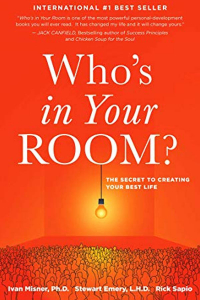
I love inspiring entrepreneurship and other people and inspiring people to be the best version of themselves. If they know of a company that needs to exit, they could go to the website, Mutual Capital Alliance. They can send an email to that website. If they want to learn about values-based decision-making, they can purchase the book, Who’s in your Room: The Secret to Creating your Best Life on Amazon.
I want to thank my co-authors for that book. My three operating values, which I meant to share earlier, are simplicity, probability, and leverage. Keep things as simple as possible. Always do things that increase the probability of hitting the stated objective. As an example of that, if you want to increase the probability of having independent eighteen-year-olds, don’t drive them around like a taxi driver their whole life.
That’s not going to create independence from this sport to that sport or whatever. Help them start a business. Lastly, leverage. Leverage existing resources, existing relationships, and existing technology. Life is a lot easier. When I wrote my book, I called two bestselling authors that I didn’t know. I said, “You’ve already done bestselling books. Would you mind adding your name to my book and blasting it out to your list?” Who’s In Your Room became a best seller using simplicity, probability, and leverage. I wanted to share that nugget. That would help them and help us if they bought the book.
There’s another nugget in there. Don’t be intimidated. Pick up the phone, call somebody, and ask. The worst thing that can happen is that they say no but they might say yes.
You made me think of yourself. A friend of mine, I met her kids. They were full of life. I go, “What is going on with your kids?” They were in their early twenties. She said, “It’s funny. When they were 9, 10, 11, and 12-ish, we would go into a park, and I made them introduce themselves to 200 strangers every day.” I’m like, “How did you do that?” “Don’t get me wrong. It took a lot.” There were a lot of temper tantrums. Imagine parents doing that with kids that you’ve got to introduce yourself to 200 strangers in a day. I’ve tried that with my kids. It has been hard. They are getting better at it, though.
Different times, a different world. If you want a PhD in humans, that would be a good way to get started. Rick, I’m grateful. Thank you for being on the show.
You are welcome, Don. It has been great.
That’s for this episode of The Proven Entrepreneur. See you next time. Thanks. Bye.
Important Links
- Mutual Capital Alliance
- Who’s In Your Room
- Who’s in your Room: The Secret to Creating your Best Life – Amazon
About Rick Sapio
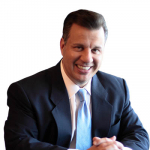 Rick Sapio is a life-long entrepreneur who started his first company when he was 13 years old, after the untimely death of his father. Since then, he has founded more than 20 companies. Since 1994, Rick has been the founder and CEO of an investment holding company, Mutual Capital Alliance, Inc., which has made more than 120 investments. Since 2003, Rick has been a co-founder and general partner of Mutual Capital Partners, a PE firm with three venture funds. In 2004, he founded USA Mutuals Advisors, Inc, a firm that manages publicly-traded funds.
Rick Sapio is a life-long entrepreneur who started his first company when he was 13 years old, after the untimely death of his father. Since then, he has founded more than 20 companies. Since 1994, Rick has been the founder and CEO of an investment holding company, Mutual Capital Alliance, Inc., which has made more than 120 investments. Since 2003, Rick has been a co-founder and general partner of Mutual Capital Partners, a PE firm with three venture funds. In 2004, he founded USA Mutuals Advisors, Inc, a firm that manages publicly-traded funds.
He is also the founder of “The Mutual Capital Alliance – Exit Concierge Service,” which is a white-glove program to assist private companies through the often-tumultuous exit process by using fixed fees; and keeping the moving parts tightly-controlled. He co-authored the International best-selling book, Who’s in Your Room: The Secret to Creating Your Best Life. Rick is the founder of www.BusinessFinishingSchool.com, a virtual learning center that has helped thousands of people grow, scale and exit. He is the co-founder of The 100-Year Real Estate Investor, which helps bring long term legacy investing to the real estate industry. He is the Founding and 7-time Chair of the Gathering of Titans Program, an annual event held at MIT in Boston. He earned an engineering degree from Rutgers University and resides in Dallas with his wife, Melissa, and their four children.
For information on how to work with Don visit Work With Don Williams
You can also reach out to Don Williams at https://donwilliamsglobal.com
Please join Don and his businesses in support of St. Jude’s Children Research Hospital in its Mission to cure Childhood Cancers. You can donate to St. Jude at stjude.org/donate
